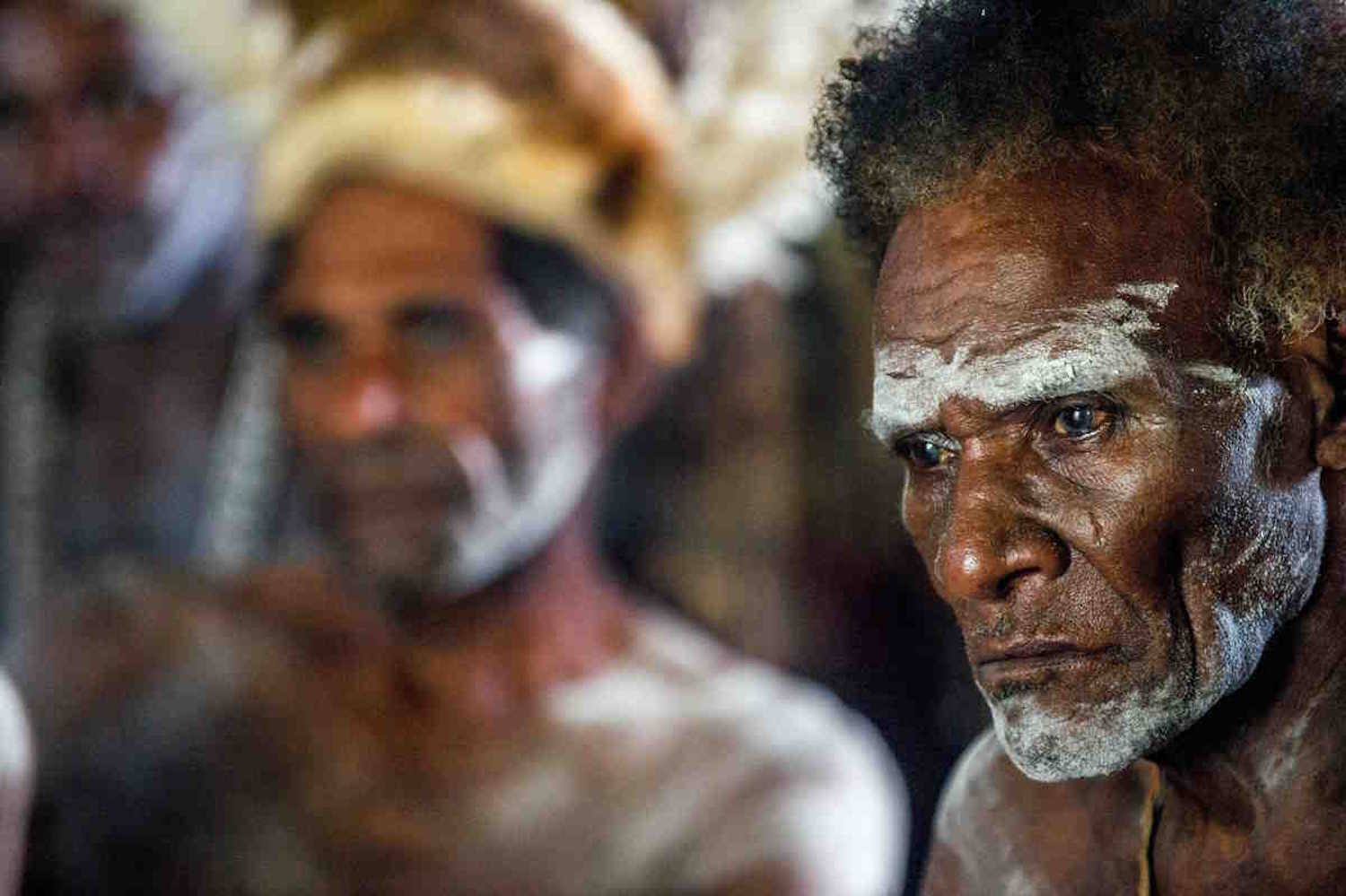Australia’s first Indigenous-led truth commission reveals the full extent of genocide in colonial Victoria — and how its consequences still shape the present.

YOUW VILLAGE, ATSY DISTRICT, ASMAT REGION, IRIAN JAYA, NEW GUINEA, INDONESIA – MAY 23, 2016: Portrait of a man from the tribe of Asmat people with ritual face painting on Asmat Welcoming ceremony
“Mass killings, sexual violence, exclusion, linguistic murder, cultural erasure, environmental degradation, child abduction.”
These were not just the side effects of colonization in Victoria, Australia — they were its very tools. According to the findings of the Yoorrook Justice Commission, this was not simply a dark chapter in history, but a coordinated and deliberate act of genocide.
The Commission’s landmark report, Truth be Told, documents in forensic detail the massacres, policies, and systemic violence that decimated Aboriginal communities in Victoria since British colonization began in the early 19th century.
More than just history: the legacy of colonization
Formed in 2021, the Yoorrook Justice Commission is the first formal truth-telling body in the Australian state of Victoria — and, notably, the first in the country led by Indigenous people. Its name, Yoorrook, comes from the Wemba Wemba language and means “truth.” But its mission goes far beyond symbolic naming: the commission was designed to investigate both historical and ongoing injustices experienced by Aboriginal peoples and Torres Strait Islanders.
This includes land dispossession, systemic discrimination, and institutional violence, not just during colonization but right up to the present day. Importantly, this truth-telling process is part of Victoria’s broader commitment to reconciliation and a formal Treaty with its First Nations — a step most other Australian states have yet to take seriously.
What has the Yoorrook commission uncovered?
Since its inception, the commission has released a series of damning findings. Between 2022 and 2024, it reported that:
- Aboriginal children in Victoria are still being removed from their families at disproportionately high rates and placed in non-Indigenous care, echoing the tragic legacy of the Stolen Generations.
- Aboriginal adults make up just 3% of the state’s population, but almost 10% of the prison population. Aboriginal youth are 11 times more likely to be incarcerated than non-Indigenous peers.
- There is a deep and enduring distrust among Aboriginal communities toward state institutions, a distrust rooted in decades — even centuries — of racism, exclusion, and violence.
The Commission has called for concrete legislative reforms, including formal recognition of Aboriginal legal practices and stronger support for self-determination. These aren’t abstract concepts — they’re about reshaping a system that, to this day, continues to marginalize and harm Indigenous people.
Genocide by design
But the most harrowing conclusion of the Yoorrook Commission is also the most unflinching. The report found that in the 20 years following British colonization of Victoria, beginning in the early 1830s, disease, violence, and targeted policies reduced the Aboriginal population from 60,000 to 15,000. That’s a 75% loss — in just two decades.
The wording is precise, legal, and damning: “The decimation of the First Peoples’ population in Victoria was the result of coordinated actions designed to destroy the essential foundations of their national life.”
It names the methods clearly: mass killings, rape, exclusion, environmental destruction, cultural erasure, and the forced removal of children. The Commission leaves no room for euphemism: this was genocide.
A nation’s refusal to listen
While Victoria has made some moves toward reckoning with its past, the country at large still struggles with acknowledgment. In 2023, a national referendum to create an Indigenous advisory body — the “Voice to Parliament” — failed, with the majority of Australians voting no.
This meant that Aboriginal and Torres Strait Islander peoples remained unrecognized in the Australian Constitution — a striking contradiction to the evidence, the suffering, and the reality that continues to unfold.
The Yoorrook report is not just about the past; it is a mirror held up to the present, asking the nation not only to look, but to act.
